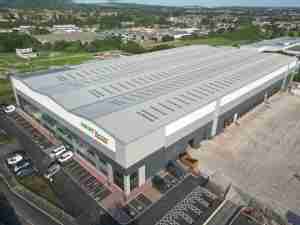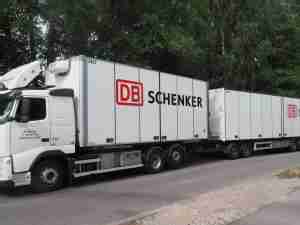Smaller logistics operators are preparing for uncertain times ahead, amidst recent reports of warehouse leasing decline as retailers pull back from inventory stockpiling.
“What we are seeing in the industry right now is a state of flux as the market responds to wider challenges,” said CartonCloud COO/ Head of North America Shaun Hagen.
“The key thing is having the ability to make smart, data-led decisions, and to be flexible.
Flexible in terms of your ability to bring on new customers with varying requirements, and the flexibility to scale up workflows with ease, and without increased overheads,” he said.
“For small and medium-sized enterprises (SME’s), this lies in the adoption of mission-critical warehouse and transport management system software, to automate and streamline business processes from end to end.”
CartonCloud has supported over 450 small-medium-sized warehouse and transport operators to overcome market changes, digitize their operations, and grow their businesses.
The company's intuitive integrated WMS/TMS software has caused ripples in the North American market since their expansion last year, due to the intuitively designed mobile app, automated workflows, and design for smaller businesses.
“It’s important to remember right now, as things continue to shift and evolve — that logistics is a unique industry,” Hagen said.
“We’ve seen this first-hand over the past few years, with the impact of the COVID-19 lockdowns, where our industry rose to face many challenges, and continued to grow and evolve throughout a number of hurdles and challenges.
“It’s also shown us the importance of having scalable systems and a WMS that can grow with you and let you bring on new customers.”
He said CartonCloud’s unique design and usability was created specifically with small and medium-sized operators in mind, providing integrated WMS/TMS software to support logistics companies to digitize their operations without the hassle or expenses usually associated with implementing new software.
“CartonCloud is actually built by logistics people, directly for the logistics industry, so we’ve removed the hurdles that prevent smaller players from accessing and implementing new technology. We’ve poured extensive time and resources into ensuring our onboarding process is simplified and efficient, to get new customers set up and benefiting from the
system as soon as possible.
“Even down to our pricing model, which is subscription-based, meaning our customers can grow with us, in a way that is sustainable for them.”
Since their expansion into the North American market last year, Mr Hagen said they have recieved consistent feedback from businesses in the USA and Canada regarding their local onboarding and customer support.
“Right now, with so many changes impacting the logistics industry, business owners and operators want to know they can speak to a real person, with industry experience, who can provide advice and support to help them get the best solution for their business,” he said.
“We have a team of experts based locally in Canada who are there to work with each business we speak to, to help them evaluate what they need from a solution, to vet if we are indeed the right fit for them, and then to support them through onboarding and set up.
“It makes a massive difference to our customers, to know that the people behind their software have actual industry experience and expertise and that they are there to support them throughout their growth.”









